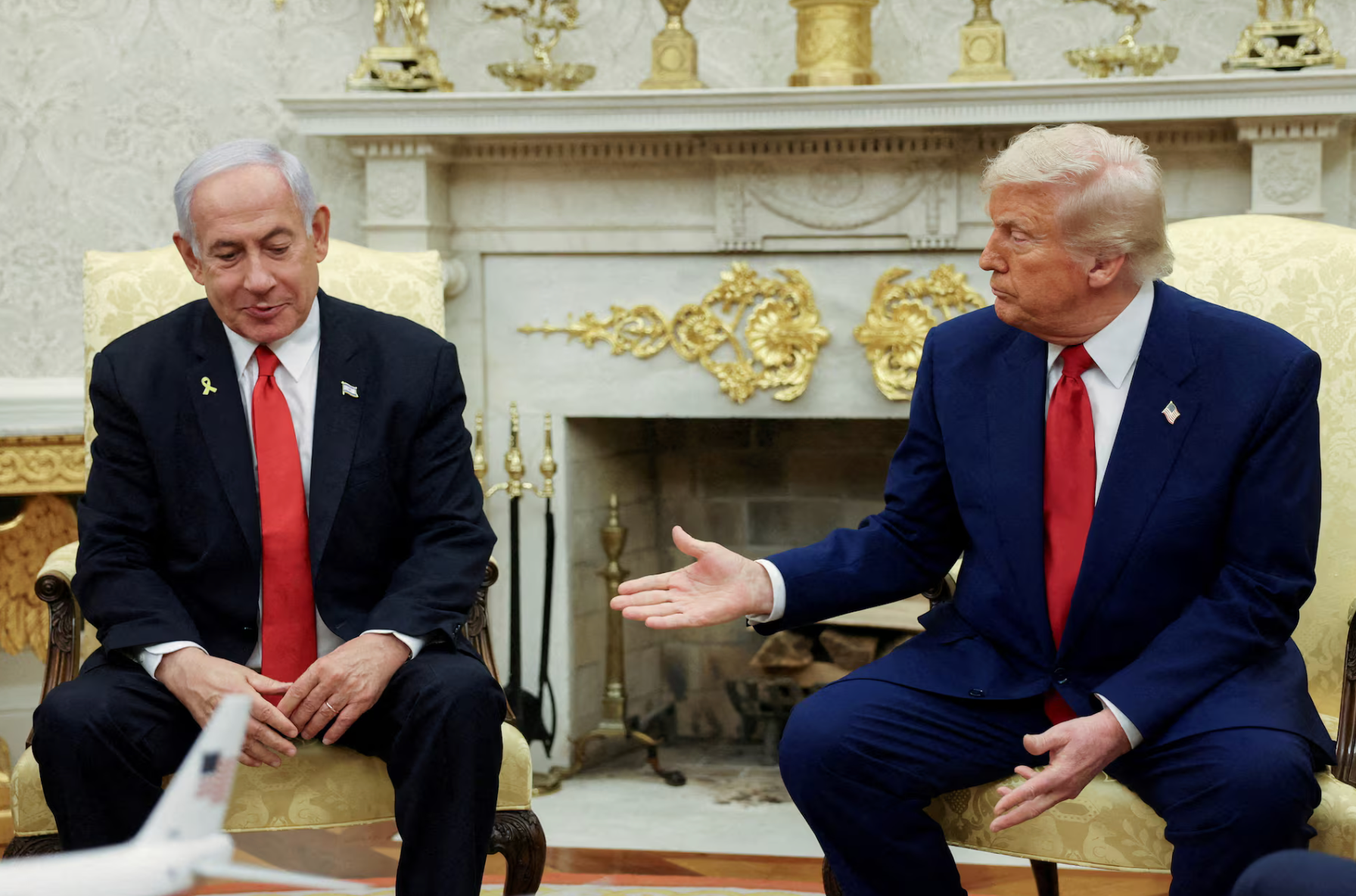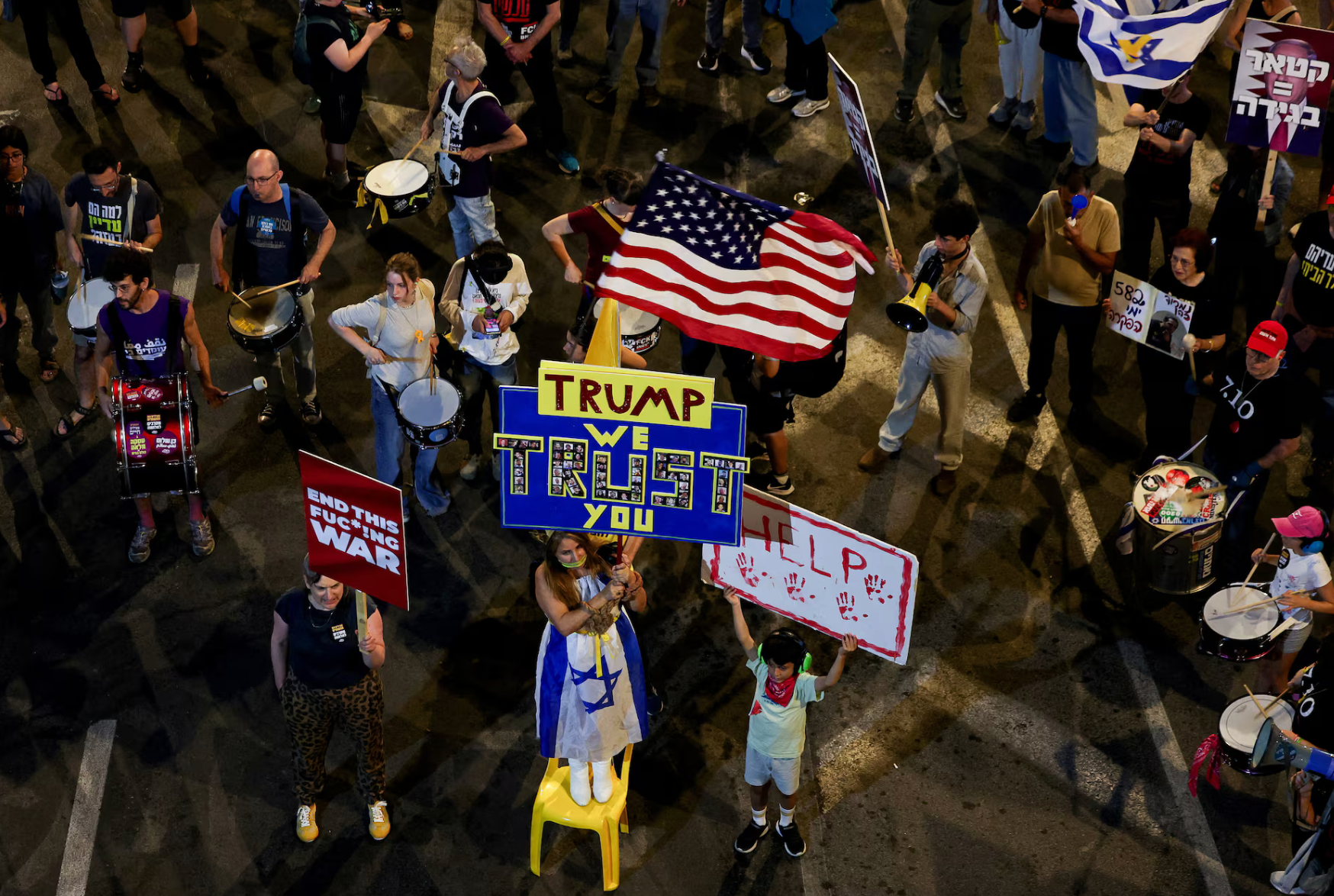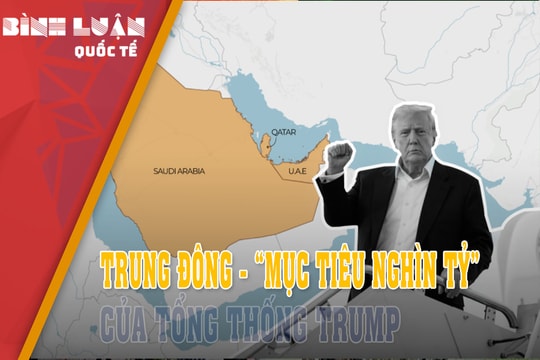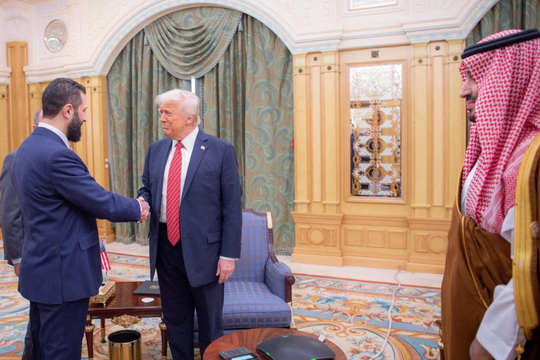Israel 'diplomatically silent' as Trump changes the game in the Middle East
Israel's right-wing government has maintained diplomatic silence this week, as US President Donald Trump made a series of rapid-fire announcements that shook Israelis' perceptions of their country's standing with its most important ally.
By Mr. Trump"skip", Israel though disappointed but stillholdsilent?

Mr Trump's decision to skip Israel on his current Middle East trip has been seen as a sign that his administration is increasingly focused on lucrative business deals with wealthy Gulf states, including Qatar, which Israeli officials have long accused of helping Hamas.
Even before the trip began, Israel was uneasy about US negotiations with arch-enemy Iran and Mr. Trump’s decision to stop bombing Houthi forces in Yemen, despite the Iran-backed group’s determination to continue missile attacks on Israel.
Israeli officials were then forced to stand by as the US negotiated a deal with the Palestinian militant group Hamas to bring home Edan Alexander, the last American hostage still alive in Gaza.
Since then, they have listened as Mr Trump announced an end to sanctions on Syria and called for normalisation of relations with the new government in Damascus, which Israel sees as a disguised jihadist regime.
Even as Mr. Trump spoke in Riyadh on May 13, taking credit for the ceasefire deal with the Houthis, Israeli media noted that warning sirens were sounding in areas across Israel, including Jerusalem and Tel Aviv, as a missile from Yemen headed their way.
Mr Trump himself brushed aside any speculation about a rift with Israel, telling reporters traveling with him in the Gulf that his visit would ultimately benefit a country that has until now counted him among its staunchest supporters.
“It's good for Israel, having a relationship like I have with these countries; the Middle Eastern countries, basically all of them,” he said.
Israeli Prime Minister Benjamin Netanyahu has so far made no comment, other than thanking Mr Trump for his help in getting Alexander released.
But he faced a widespread public perception that Israel, already under international pressure over the Gaza war, which has hampered its own hopes of normalizing relations with Saudi Arabia, was being left behind.
“The Middle East is being reshaped right before our eyes through a series of agreements and meetings, while Israel remains (at best) a sideline observer,” wrote Yoav Limor, a commentator for the right-wing newspaper Israel Hayom.
Those different priorities

Mr. Netanyahu, who is currently on trial on corruption charges he denies, has made no secret of his preference for Mr. Trump over his White House predecessor, Joe Biden, who has withheld some heavy weapons deliveries and imposed sanctions on some violent Israeli settlers.
He faces pressure from both hard-line religious nationalists within his government, who insist on continuing the war in Gaza until Hamas is completely defeated, and an Israeli public increasingly weary of the conflict, which has dragged on for more than 18 months. So far, he has sided with the hard-liners.
But the events of the past two weeks show there is a “clear difference in priorities” and the special treatment from US administrations that Israel has traditionally enjoyed may no longer apply, said Jonathan Panikoff, a former US deputy national intelligence officer for the Middle East.
“Trump is clearly determined to move forward with an agenda focused on trade, commerce and investment,” said Panikoff, now at the Atlantic Council think tank in Washington. “If traditional political or security issues where the US and Israel have historically worked closely together don’t align with Trump’s priorities, he will still push them.”
While insisting that US-Israel relations remain strong, Trump administration officials have at times privately expressed frustration with Mr. Netanyahu, as the president seeks to fulfill his campaign promise to quickly end wars in Gaza and Ukraine.
They want Mr. Netanyahu to do more to reach a ceasefire and hostage deal with Hamas, and have shown little appetite for supporting any Israeli attack on Iran’s nuclear facilities while the United States pursues a diplomatic solution.
White House National Security Council spokesman James Hewitt said the administration is continuing to work with Israel to free the remaining 58 hostages held in Gaza and to enhance regional security in the Middle East.
“Israel has never had a better friend in its history than President Trump,” he said.
Hardliners in the Israeli government, who had cheered Mr. Trump’s announcement of plans to clear Gaza of Palestinians and develop the coastal strip into a seaside resort, have largely been silent, and Israeli officials have carefully avoided any criticism of the U.S. administration.
“The United States is a sovereign nation,” a State Department spokesman said this week, when asked if there was concern that Israel had been sidelined in Alexander’s release. Israel’s “intimate dialogue” with the United States would be conducted “directly, not through the media.”
An Israeli delegation was sent to Doha for ceasefire talks coordinated by Mr Trump's special envoy, Steve Witkoff, but Israeli forces intensified air strikes in Gaza, killing dozens of Palestinians on 14 May.
Netanyahu himself signaled that Israel, which earlier this month announced plans for an intensified campaign in Gaza, remains steadfast in its war aims, including the elimination of Hamas as a military force and in power.
"Israel will not stop and will not surrender," he said on May 14.




.jpg)
